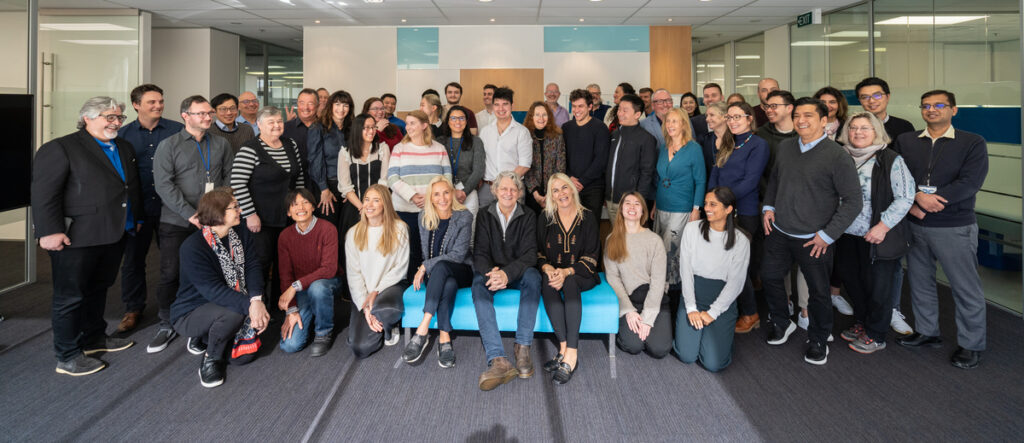AFT Pharmaceuticals (NZX: AFT, ASX: AFP) today announces the analysis of its study examining its medicine Pascomer as a topical treatment for facial angiofibromas (FA) associated with Tuberous Sclerosis Complex (TSC).
The study showed Pascomer delivered statistically significant [p<0.05] benefits against the clinically relevant IGA¹, FASI² and patient-physician improvement scales. However, the medicine did not reach the threshold on the IGA scale that the US Food and Drug Administration (FDA) considered necessary for its registration in the United States (US) as a treatment for FA.
AFT also announces its Pascomer development partner and US licensee Timber Pharmaceuticals has terminated its agreements with AFT.
AFT will now take over funding the remaining development work for the orphan³ drug indication of Pascomer in addition to any non-orphan indications. It will also take over the commercialisation programme in North America. Germany’s Desitin Arzneimittel GmbH continues as the licensee for the FA orphan drug indication in Europe, Switzerland and UK.
Neither the clinical study results, nor the change in the medicine’s licensing, development and commercialisation arrangements, are expected to diminish the $12.5 million carrying value of AFT’s Pascomer assets.
AFT Managing Director Dr Hartley Atkinson said: “While the Pascomer trial did not deliver results that meet the FDA’s thresholds, the medicine continues to show promise in the treatment of this rare and distressing disease.
“We also continue to believe Pascomer has good potential for non-orphan indications, which combined may offer markets larger than those for FA in TSC and we therefore plan to continue to progress the development of the medicine.
“As previously noted, there were always significant uncertainties associated with both the conclusion of the present Phase II/III clinical trial and the successful registration of valuation of the Pascomer assets.”
Dr Atkinson also said the new research, development and commercialisation arrangements would be well accommodated within the company’s existing overall research and development budget, signalled in May 2022 at ~ $12 million for the 2023 financial year.
“We see a growing potential to expand our R&D pipeline. In the current environment, many cashflow negative research healthcare companies are finding it difficult to fund their R&D programs. AFT’s positive cashflows position the company well to undertake such projects either alone or in partnership with others.”
He said Timber Pharmaceutical’s termination of the licensing agreement had been a possibility since a competitor, Japan’s Nobelpharma, secured FDA approval for a treatment for FA. The FDA’s decision effectively blocked Timber Pharmaceuticals’ entry into the US market for 7 years with Pascomer as an orphan drug for treatment of FA.
Pascomer study detail
Tuberous Sclerosis Complex (TSC), is a genetic disease, estimated to affect one in 6,000 people⁴. Around 70-80% of those with TSC over the age of two suffer from facial angiofibromas, which can cause adverse effects on appearance and in serious cases, impair breathing and vision⁵.
The Pascomer clinical study compared the change in facial angiofibromas in patients treated with either placebo, or Pascomer low or high strength for 26 weeks. A total of 107 patients were enrolled with 38 in the placebo group and 36 in the Pascomer low strength and 33 in the Pascomer high strength patient groups.
The US FDA required a comparison of responders amongst groups using a 2-point improvement in the IGA scale as the criteria for a success. This is a challenging endpoint to reach and although higher for both treatment groups in comparison with the placebo it did not reach statistical significance [p>0.05].
On the less rigorous exploratory primary endpoint using a 1-point improvement in the IGA scale [see Figure 1] both low and high strength Pascomer had a statistically significant higher responder rate than the placebo [p<0.05].
The secondary endpoints for the IGA scale, FASI, Patient or Physician rated improvement all reached statistical significance [p<0.05] for both the low and high strength Pascomer treatments in comparison with the placebo.
FIGURE 1: Example of a 1-point change in the IGA scale over the study period


For and on behalf of AFT Pharmaceuticals Limited by Malcolm Tubby, Chief Financial Officer.
For more information:
Media:
Richard Inder
The Project
Tel: +64 9488 0232
Investors:
Dr Hartley Atkinson
Managing Director
AFT Pharmaceuticals Tel: +64 21 645 643
References:
- The Investigators Global Assessment (IGA)
- Facial Angiofibroma Severity Index (FASI)
- An orphan drug is a pharmaceutical agent developed to treat medical conditions which, because they are so rare, attract government assistance
- https://www.tscalliance.org/about-tsc/what-is-tsc/
- Verheyden, Charles. 1996. “Treatment of the Facial Angiofibromas of Tuberous Sclerosis.” Plastic and Reconstructive Surgery 98 (5): 777–83.





